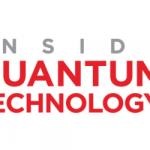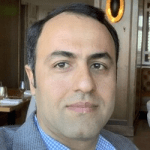Quantum News Briefs January 16: Prisco’s three predictions for divergent quantum tracks in 2023; Megaport and Qrypt demonstrate first of its kind global quantum secure data transmissions; + MORE

Quantum News Briefs January 16: Prisco’s three predictions for divergent quantum tracks in 2023; Megaport and Qrypt demonstrate first of its kind global quantum secure data transmissions; + MORE
*****
Prisco’s three predictions for divergent quantum tracks in 2023
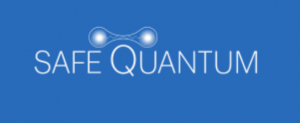 John Prisco, Security CEO and founder of Safe Quantum Inc., is the author of this January 12 Forbes discussion in which he makes three predictions for divergent quantum tracks in 2023. Quantum News Briefs summarizes below:
John Prisco, Security CEO and founder of Safe Quantum Inc., is the author of this January 12 Forbes discussion in which he makes three predictions for divergent quantum tracks in 2023. Quantum News Briefs summarizes below:
1. Uniting behind the most promising modalities will deliver a quantum computer faster.
There may not be a consolidation of approaches in 2023, I predict it will become more readily apparent that there must be a concerted effort to unite behind the most promising modalities to deliver a quantum computer faster. The other quantum track can be described as secure communications—using quantum technologies to transmit and protect data. There, China appears to have the edge, followed closely by Europe.
2. There will be a growing focus on quantum-key distribution as a data protection strategy.
The United States will begin taking cues from China and Europe experiments in metro-scale QKD and begin focusing more attention on QKD as part of a more comprehensive defense-in-depth data protection strategy. While PQC is a valuable step, it must be accompanied by QKD.
3. More U.S. companies will deploy quantum-key distribution on private networks.
We should see more U.S. companies begin to deploy QKD within their own private networks or as part of testbeds. The threat of “harvest data now, de-crypt it later” attacks is real, and most commercial enterprises will begin guarding against that with QKD.
Prisco writes in conclusion, “With the convergence of government-standards-based work, academic research, and accelerated commercialization of quantum security and computing, 2023 is shaping up to be an exciting time for what lies along the road toward a quantum future.” Click here to read Prisco’s original article.
*****
Megaport and Qrypt demonstrate first of its kind global quantum secure data transmissions
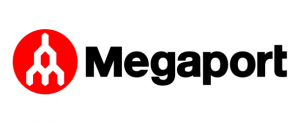 Qrypt and Megaport debuted the ability to transmit data using quantum-secure methods powered by Qrypt quantum key generation technology on January 15. Quantum News Briefs summarizes the announcement below.
Qrypt and Megaport debuted the ability to transmit data using quantum-secure methods powered by Qrypt quantum key generation technology on January 15. Quantum News Briefs summarizes the announcement below.
Using Megaport’s industry-leading Network as a Service (NaaS) platform, file-sharing applications were launched across several global data centers, including AWS in San Francisco, Azure US East in Virginia, and Google Cloud in Tokyo. The data shared between each location was protected using first-of-its-kind quantum-secure cryptography, ensuring privacy and security both now and into the future.
Megaport provides network connectivity across hundreds of public clouds and data centers worldwide, allowing for affordable and easy-to-manage network connectivity on a global scale. Megaport ONE enables users to deploy applications to cloud service providers in a matter of minutes. The ability to utilize Qrypt technology within Megaport ONE provides quantum-proof security and privacy for all data transmissions. Configuring applications deployed using Megaport ONE to use quantum-encrypted REST requests and responses can be configured with minimal support. Quantum-secure data transmission is available on all major cloud providers across the globe, including AWS, Azure, and Google Cloud.
“Demonstrating quantum-secure connectivity across regions and services is just another example of how Megaport is the best place to network for the most sensitive workloads in the cloud,” said Jim Brinksma, CTO of Megaport. Click here to read complete announcement.
*****
Verizon trials quantum-safe technology deployments
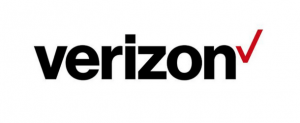 Nancy Liu, Editor of SDXCentral, discussed Verizon’s trials of quantum-safe deployments in January 11 artile summarize here by Quantum News Briefs.
Nancy Liu, Editor of SDXCentral, discussed Verizon’s trials of quantum-safe deployments in January 11 artile summarize here by Quantum News Briefs.
Verizon has conducted trials deploying a quantum key distribution (QKD) network and tested quantum-safe virtual private networks (VPNs), while internally preparing its networks against post-quantum threats.
Verizon tested the QKD network deployment in the Washington D.C. area in 2020 and the company is working on another one in the Boston area, Lee Sattler, distinguished engineer in product strategy and operations at Verizon, told SDxCentral, claiming it’s one of the first carriers to pilot QKD in the U.S.
During the first trial, quantum keys were created and exchanged over a fiber network using a QKD network between three Verizon locations in D.C.
The biggest challenge for the deployment is the distance limitation, “because the quantum communications are very fragile,” he noted. “Currently, we’re looking at maybe between 60 to 80 miles that one can go, and that’s quite limiting over fiber, so we’re looking at what one could do with quantum repeaters in the future when they become available and how we could extend the distance of quantum communications.” This challenge limits the QKD rollout within a metropolitan area, “but when we get to a point where we have quantum internet and we build that up to a point where it is continental, then we could build something across the nation,” Sattler said. Click here to read article in-entirety.
*****
EU funds Qu-Pilot initiative with £16.7m to upgrade micro, nano, and quantum technology infrastructures
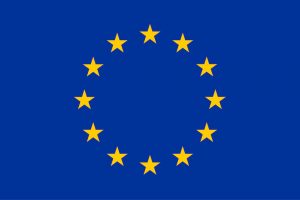 The European Union has granted a €19m (£16.7m) Specific Grant agreement (SGA) funding to upgrade the existing European micro, nano, and quantum technology infrastructures and respond to a growing demand of pilot fabrication services by quantum technology companies. Quantum News Briefs summarizes the announcement from Business Leader UK.
The European Union has granted a €19m (£16.7m) Specific Grant agreement (SGA) funding to upgrade the existing European micro, nano, and quantum technology infrastructures and respond to a growing demand of pilot fabrication services by quantum technology companies. Quantum News Briefs summarizes the announcement from Business Leader UK.
The initiative includes 24 member organisations from nine European countries, and it is led by VTT Technical Research Centre of Finland. The new initiative, Qu-Pilot, will facilitate this development by offering companies a direct path to design, develop and validate their hardware products and processes on a pilot scale. This, in turn, will accelerate the commercialisation of these products.
Quantum technology is one of the key development areas of the European Union. To further enhance and expedite the commercialisation of quantum technology, it is important that European companies have a faster lab-to-market path with optimal technology and product development capabilities. Upgrading the existing micro, nano, and quantum technology infrastructures in Europe will support this goal.
The European consortium, led by VTT, involves 24 organisations, including both RTO’s and private companies from nine countries. The role of private companies is to be the first use cases of the services, which will also help aligning the upgrade with the needs of companies.
Related: IQT NORDICS announced for Copenhagen, Denmark June 6-8, 2023 in partnership with the Danish quantum community and several other Nordic organizations from Finland and Sweden
VTT’s Research Manager Pekka Pursula, said: “VTT is privileged to lead such a significant project, which will improve European competitiveness. This project is a natural continuation of the microelectronics and quantum technology development that VTT and Finland have done and achieved over the decades. It positions us to work with our European partners to make Quantum technology a European success story.” Click here to read BusinessInsider UK article in-entirety.
*****
Sandra K. Helsel, Ph.D. has been researching and reporting on frontier technologies since 1990. She has her Ph.D. from the University of Arizona.


















